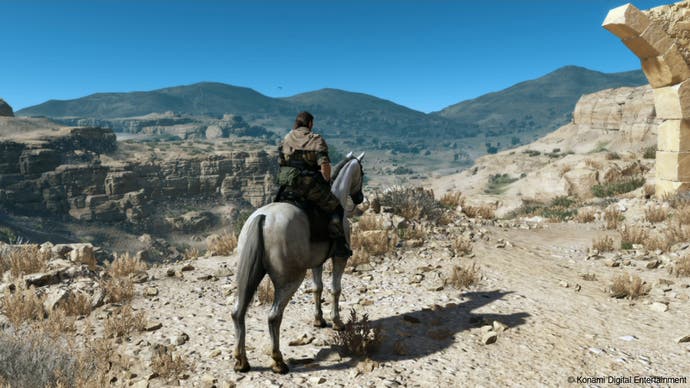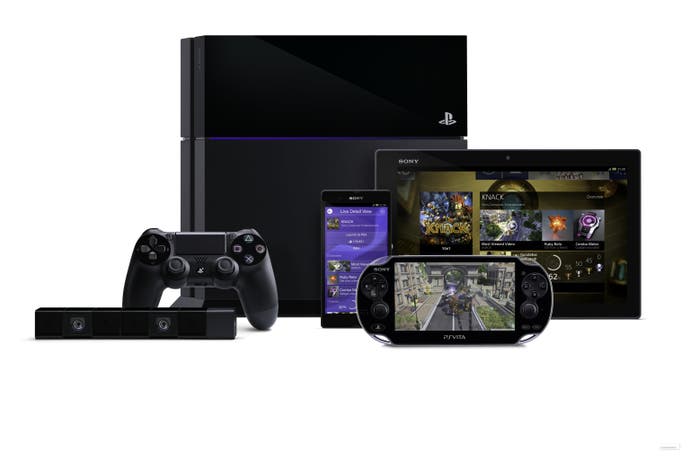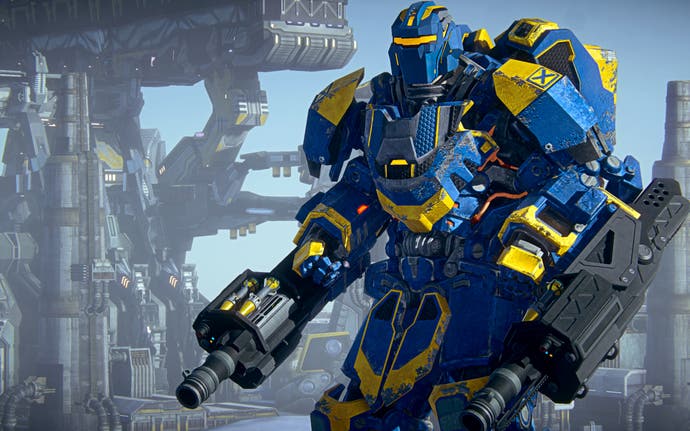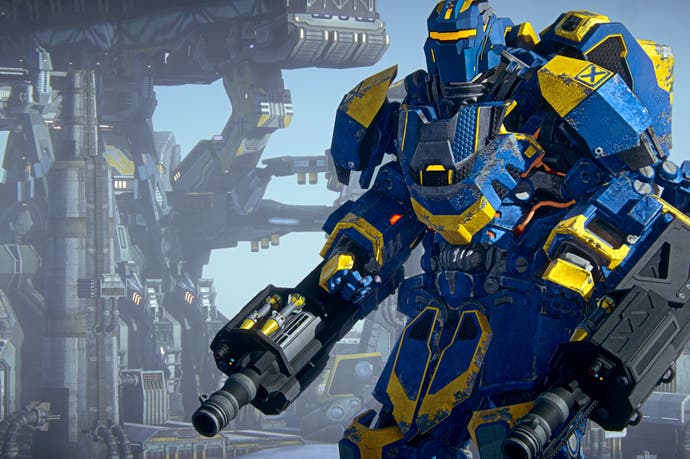Sony's E3 victory was a PR stunt, but PlayStation 4 is still the one to watch
No DRM was an open goal, but Sony's indie focus and experience in F2P could be defining.
The reaction was "quite extraordinary", in the words of SCEE boss Jim Ryan, and it's hard to argue with him. I've been to Sony press conferences since ECTS and I don't think I've ever seen a reception like this one. But after the swell of excitement subsided I got to thinking, if all Sony has done is stand still and watch Microsoft volley itself in the face repeatedly, then surely this victory is rather illusive? How does doing the same thing again meet the underlying challenges PlayStation faces in 2013?
Let's recap. PlayStation 4 costs what a new console often costs - £349. It has a mixture of games on discs and digital downloads. It charges a subscription for online play. This model sounds familiar! And while we've already laid into Microsoft's hoary old Xbox One line-up, Sony's first-party offering isn't that much more exciting. Take The Order: 1886 - it looked interesting for a while there, like a sort of steampunk A-Team in the days of Jack the Ripper - but then they threw open the carriage door and it was Gears of Whitechapel. Pass! (At least that's not "Online Pass", I suppose.)
Zoom out of E3 and the same challenges still face Sony and Microsoft. For one thing, you can't replicate what the PlayStation 2 did to sell 150 million units; hitching an expensive new breakthrough technology like DVD to a massive pile of exclusive games in new categories (GTA 3, God of War) or in their peak years (MGS, Final Fantasy, Gran Turismo) just isn't viable. Surely the last few months have proven this beyond doubt - Microsoft pitched us live TV in an on-demand world, while the games that both companies (and even Nintendo) are pitching as their best and brightest are plainly just variations on a theme. Five years of declining console game sales suggest that we're bored of reheated templates. Sure, Call of Duty and FIFA prop everything up, but to many of their players the role they fill is closer to that of Facebook or Twitter than anything else.

Another massive challenge that both companies face is the declining relevance of specific pieces of hardware. These days luxury hardware is disposable; it's your login that's permanent, whether it's iTunes, Google, Steam or what-have-you. Sony has the Sony Entertainment Network and Microsoft has Microsoft Passport, and the cold and corporate ring to each name is reflected by the companies' hesitance to remove the barriers between the experiences their logins shield and a wider potential ecosystem.
That PlayStation cloud service we're promised in 2014? You should be able to access that on any device. PlayStation Mobile - and the interplay between games developed for that Android system and the other PlayStation devices - is a positive, but now is the time to go all-in. Microsoft at least has allowed SmartGlass to filter across to iTunes and Google Play, but with about as much enthusiasm as an overprotective dad chaperoning his teenage daughter to the prom. Even Microsoft-owned devices like the Windows Surface only get half-arsed spin-off games like Halo: Spartan Assault rather than the real deal. Master Chief, I want you home by midnight or you're grounded!
With that said, there have been signs recently of both companies coming to terms with the declining importance of hardware. Microsoft's tactic of running games off a Virtual Machine within Xbox One suggests it could deploy a new, more powerful Xbox One whenever it feels like without making any changes that would break compatibility with existing games. Like iPhones and iPads, it could simply phase out the weaker Xbox One systems, while new games could carry an iTunes-style specification that they only work with the latest version of the platform. This might be confusing at retail, but hey, Microsoft is pretty much murdering boxed games anyway. There's a degree of business sense to this stuff, although after this week Don Mattrick and friends will have their work cut out emptying feet from their mouths long enough to explain it.

Meanwhile, on the light side of the force, Sony's PC-in-a-box architecture means it could probably adopt a similar approach, but the signs from E3 are that it is more interested in rejuvenating its platforms through distinctive games. Not the big shooters and racers - they are about as distinctive as a cat meme on the internet, although sadly less touching - but the many independent games it has identified as the creative future of the PlayStation business.
I don't know about you, but my games of the show are things like 17-bit's Galak-Z - an open-world 16-bit shoot-'em-up inspired by 70s anime - and Supergiant's Transistor. Sony has always courted indies, of course - and nurtured independent thinking within its studios rather than battering them with metascore projections - but the scale of its push for PS4 and Vita is unprecedented. If you're slightly bored of gaming and you catch a PS4 advert this Christmas and it's full of simple, bright, eye-catching game ideas that project diversity and imagination from within a glaze of nostalgia, that might turn your head. Alone, these indie titles are curios; in aggregate, they seem like a serious attempt to differentiate. And how is this relevant to the declining importance of hardware? One of the neat things about indie games is that they are less technically demanding, which allows for greater portability.
Both companies are also experimenting with new business models, although the contrast is once again unflattering to Microsoft. Killer Instinct's approach of letting you play as Jago and pay for other characters is a toe dipped in free-to-play waters, but as Chris Donlan pointed out on our podcast, this is a problem that has already been solved; League of Legends rotates the free character at intervals so you can try everybody out for nothing and then buy the ones you like. Hence League of Legends is an F2P game where you see huge diversity in play styles and match-ups, whereas KI is shaping up to be a game where you never find an opponent playing as anyone other than Jago. As for World of Tanks on Xbox 360 - it's a win-win for Victor at Wargaming, who presumably got a fat cheque to build it, but strategically it's about as forward-looking as a rear-view mirror. What's the next World of Tanks, Microsoft? Buy it or build it.

The thing about these new business models is that they can be used for good and for evil. On mobile they are frequently misused - games like Candy Crush Saga take good ideas, execute them well, and then can't resist squeezing you harder than they should because they know they can. That isn't good business - never mind being morally dubious, using unregulated psychological hooks to rinse unthinking customers will sow distrust about your sector in the long run and prevent you building a sustainable industry. So you're not just f***ing us with your Candy Crush, you're f***ing yourselves. Smartphones and tablets do this far too often. But on the PC, there's growing evidence of F2P being used responsibly so everyone wins - Tribes Ascend, for example, or the amazing PlanetSide 2. The amazing PlanetSide 2, incidentally, is a PC game owned by Sony that is coming to PS4. The expertise already exists within the organisation to do that again and again.
Knitting all of these things together and making them work at scale is going to be amazingly difficult, but whereas the PlayStation 4 hardware itself left me cold on a cold night in New York in February, the overall shape of PlayStation that's emerging from the fog of expiring developer NDAs and embargoed press briefings is far more encouraging - and that positivity is about much more than just allowing us our basic consumer right to share and trade the things we own.
I got the same thrill as everyone else watching Sony bloody Microsoft's nose on Monday night - it's great drama - and I had the same concerns a few hours later when the hype had dissipated. But whereas the press conference talking point seemed like an illusive victory - maybe even a pyrrhic one - a wider view of the PlayStation position suggests Sony gets what it has to do. The challenge now is that it has to go do it. Game on.

